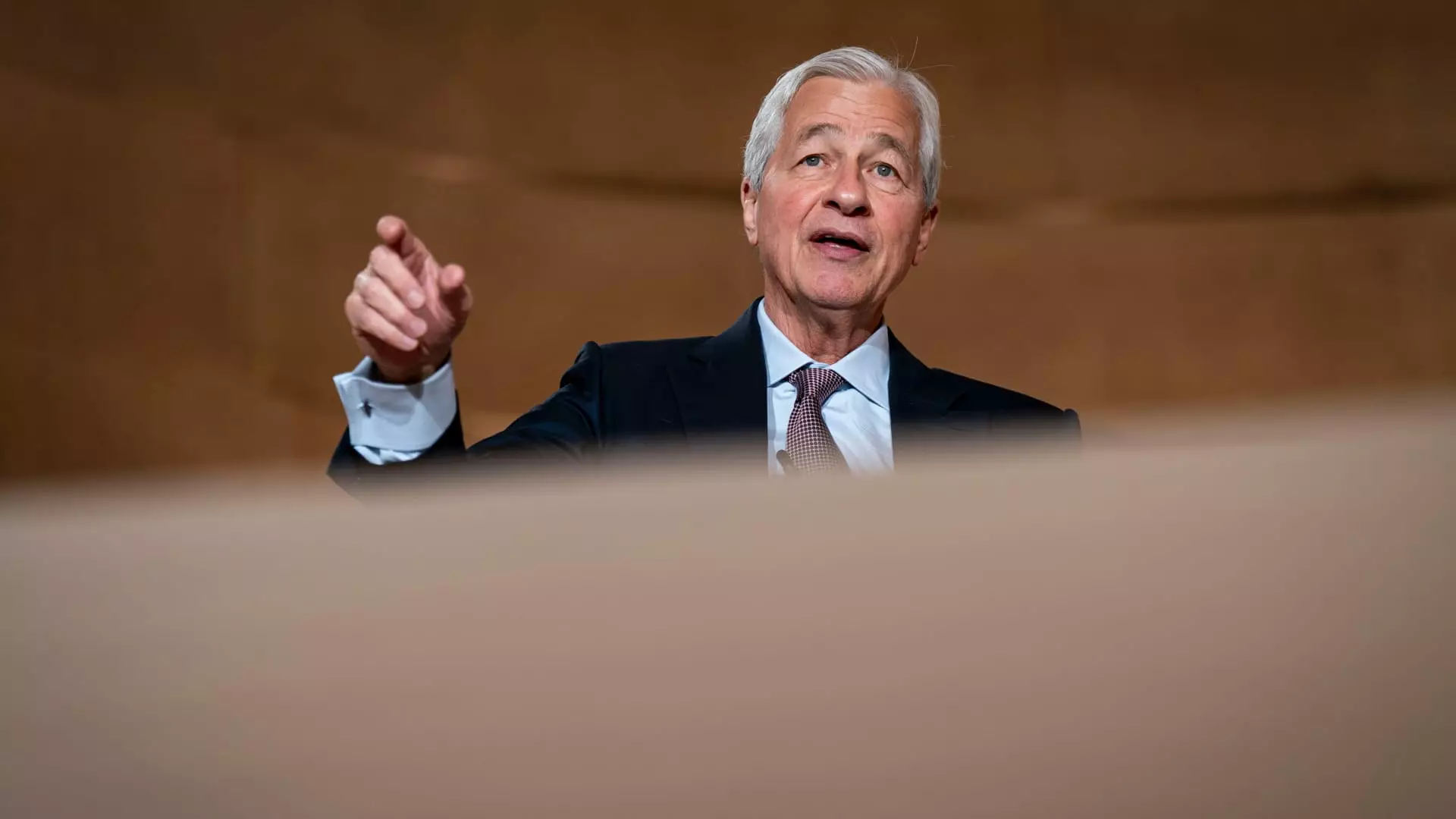In a compelling discourse during JPMorgan Chase’s annual investor day, CEO Jamie Dimon presented a strikingly candid assessment of the U.S. economy, one that demands our attention. While the stock market appears buoyant, bolstered by a gradual recovery from April’s lows, Dimon vehemently argues that such optimism is misplaced. His unsettling observations elevate the need for critical reflection on the underlying structures that promote this facade of stability. This is not merely an issue of finance but a symptom of a wider economic malaise that risks leading us into precarious waters if ignored.
Record Deficits: An Unseen Time Bomb
At the core of Dimon’s concerns lies the unsettling reality of America’s exploding deficits. He describes a disconnection between market perceptions and economic realities, where complacent assumptions about the resilience of central banks reign supreme. The short-sighted belief that bureaucratic bodies can manage these crises ignores the possibility of their inability to respond adequately when push comes to shove. What’s particularly alarming is how these deficits have managed to slip under the public’s radar, with many assuming that record-breaking borrowing is merely a necessary evil. Yet, such thinking could very well be setting the stage for an economic downturn of significant proportions.
Stagflation: The Unwelcome Specter
Dimon further warns about the specter of stagflation—a toxic combination of stagnant growth and rising inflation—that is looming more ominously than most financial analysts care to acknowledge. Statistics and forecasts suggest that the U.S. economy might be on the precipice of experiencing this dual disaster. Dismissing it as an improbable event could lead to a severe underestimation of risk, prompting businesses and investors to remain oblivious to impending pressures. Dimon emphasizes that the odds of this economic condition manifesting are far higher than the market consensus may suggest—a sentiment that feeds into a growing narrative of uncertainty.
The Illusion of Earnings Stability
Dimon also casts doubt on the inflated earnings estimates currently buoying Wall Street’s optimism. Predicting that these estimates may dwindle to 0 percent growth in the coming months, down from the 12 percent that started the year, he spotlights a crucial vulnerability in the corporate sector. With increasing tariffs and a volatile trade landscape, companies seem to be in a retreat, adjusting their projections accordingly. This predicament points toward a potential contraction in stock prices, challenging the prevailing bullish narrative and emphasizing the need for vigilance among investors.
The Infamous “Wait-and-See” Mentality
Amid these alarming economic indicators, corporate leaders exhibit what can only be described as a “wait-and-see” attitude toward mergers and acquisitions. This cautious stance is emblematic of a wider hesitance in investment banking that may further constrain the economy’s potential for growth. When financial decision-makers adopt such a defensive strategy, it can stymie innovation and partnership opportunities—both vital in fostering economic advancement. The forecast of a looming decline in investment banking revenue illustrates how deeply entrenched this uncertainty has become.
Dimon’s Legacy and the Uncertain Future
Though Jamie Dimon’s tenure as CEO has been marked by a series of successful maneuvers that avoided economic crises, the question of succession looms incessantly. His tentative timeline for stepping down raises issues about continuity in leadership amidst adversities that challenge traditional forms of economic navigation. As the world grapples with increasingly complex problems, the need for a strong, experienced leadership figure has never been more critical. Will Dimon’s successors be equipped to handle the impending storms, or will they, too, fall prey to complacency?
A Wake-Up Call for Economic Consciousness
Ultimately, Dimon’s candid remarks should serve as a wake-up call, urging both the public and financial entities to engage in a more profound economic consciousness. This is the moment for investors, policymakers, and citizens alike to confront the unsettling reality of our financial landscape. Ignoring these risks in favor of mere short-term gains could lead to dire consequences. We stand at a crossroads, and the decisions made now will reverberate throughout the economy for generations to come.

